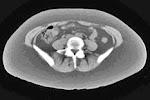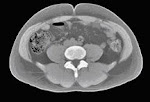Hoodia is a natural supplement that is claimed to suppress the appetite and is widely promoted on the Internet, and recently made available in select shops in India too.
Hoodia is a spiny, succulent plant (a plant that retains water in its leaves and stems, like Aloe Vera) that grows in the Kalahari Desert, South Africa. For several years the natives have been chewing the plant to help ward off hunger during their long hunting trips. The Hoodia species with purported appetite-suppressing properties is Hoodia gordonii. In 1997, researchers isolated an extract of the plant called P57 the shortened version of oxypregnane steroidal glycoside P57AS3), which is believed to stimulate feelings of satiety in the brain.
Phytopharm, an English biopharmaceutical company, was licensed in 1997 to develop P57. Hoodia manufacturers and vendors often mention a trial showing that after two weeks, subjects taking Hoodia ate 1,000 fewer calories per day than those taking a placebo. However, the study involved only 18 people, was never peer-reviewed or published; the study was sponsored by Phytopharm.
The only published study has been in rats, which consumed less food after P57 was injected into their brains (Brain Research, Sept. 10, 2004). Although that study shed some light on the extract’s activity (it affected neurons in the hypothalamus), the results clearly don’t apply to humans swallowing a pill or capsule.
Experts claim there aren’t enough Hoodia plants in the world to account for all the alleged Hoodia products on the global market. Therefore, some may contain little or no Hoodia gordonii, include the wrong plant parts, or use questionable plant sources.
We do not yet know the precise dose needed to achieve weight loss or the drug’s safe upper limit. There’s simply too little evidence to say whether any of the Hoodia now on the market works or is safe to use. We may know more down the road, but until then, you should probably avoid it.
Source: Dr. Celeste Robb-Nicholson, M.D, in the August 2008 Harvard Women’s Health Watch, a Health Publication issued by Harvard Medical School.
Subscribe to:
Post Comments (Atom)


No comments:
Post a Comment